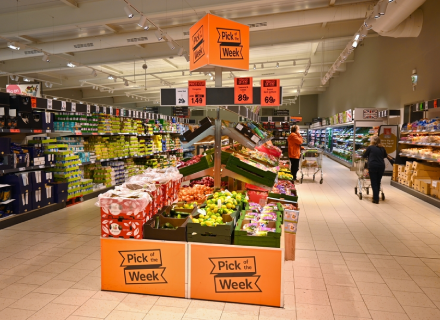According to a survey released, summer sales of clothing and household goods caused British retail prices to decline in annual terms this month for the first time since October 2021.
Following a 0.2% increase in July 2024, the British Retail Consortium reported that store prices decreased by 0.3% in August when compared to the same month in 2023.
Non-food goods saw their largest price decline in over three years; falling by 1.5%, while food prices increased by 2.0%, the least since November 2021. This increase was slower than the 2% increase in July.
“Shop price inflation has fallen again in August as many non-food retailers have kept promotional support due to the unpredictable weather,” said Mike Watkins, head of retailer and business insight at market research firm NielsenIQ, which compiles the data.
“Food retailers have introduced more price cuts to help drive incremental sales during the ‘summer of sport’,” Watkins added, referring to the Paris Olympics and the men’s Euro 2024 soccer tournament.
Prices in large retail chains were the subject of the BRC survey from August 1 to August 7.
For the first time this year, the most recent official indicator of annual consumer price inflation, which takes into account both services and retail goods, went up from 2.0% to 2.2% in July.
As the impact of the significant drops in energy prices in 2023 lessens, the Bank of England projects that CPI inflation will reach about 2.75% by year’s end before rising to the BoE’s target of 2% in the first half of 2026.
Investors anticipate that the BoE will lower interest rates by at least one-quarter point before the year ends. Interest rates were lowered from their 16-year high earlier this month.
Meanwhile, the UK private sector expanded faster than anticipated in August, marking the fourth month of consecutive increases in activity. This resulted in the pound reaching a 13-month high versus the dollar and suggested strong economic growth in the upcoming summer.

